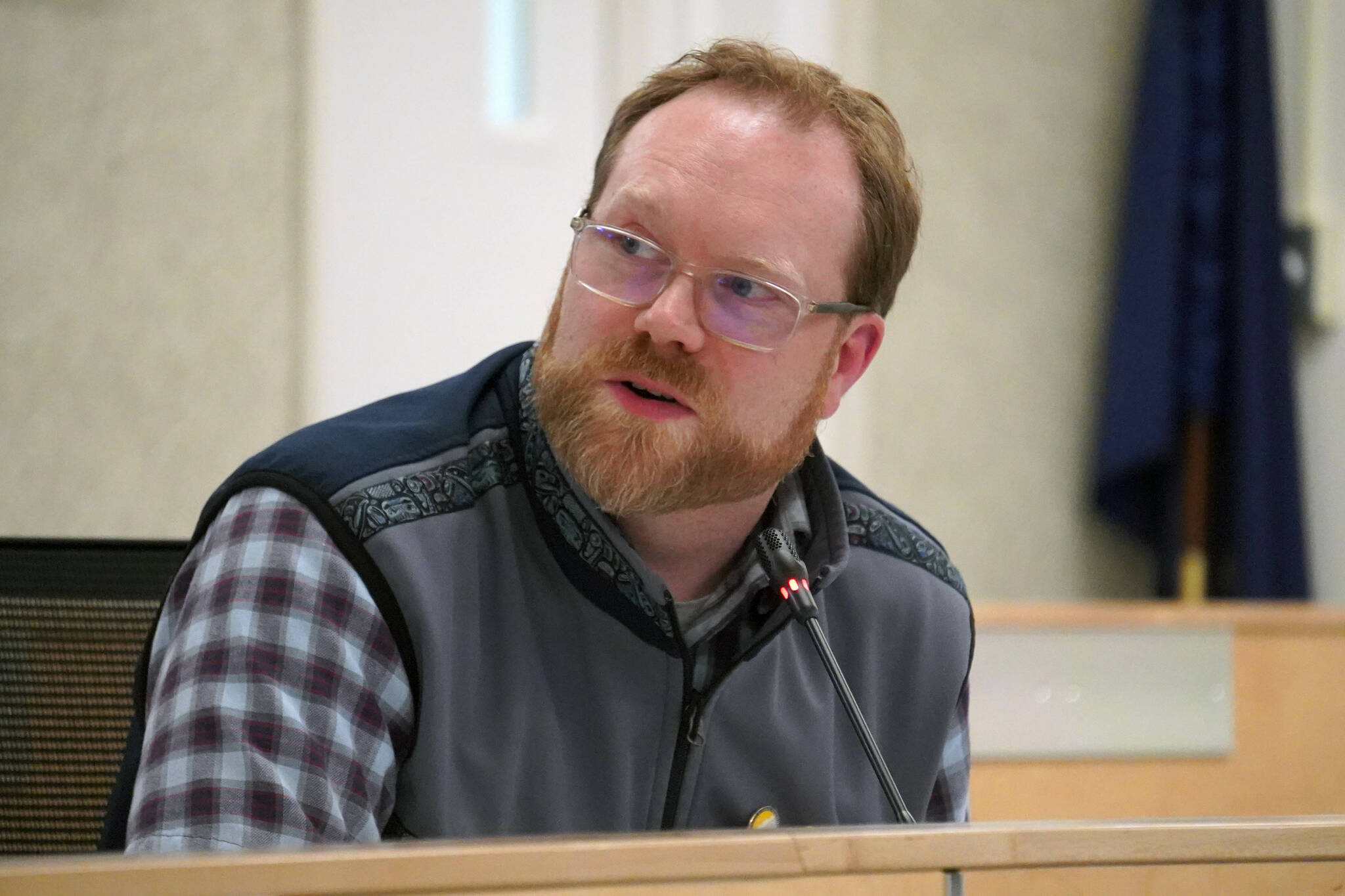Roughly eight months after representatives of the State Department of Transportation met with Kenai Peninsula Borough residents to discuss the use of brine on winter roads, they returned to Soldotna on Monday to report back on changes they made and collect feedback on what residents experienced.
That October meeting was motivated by significant public outcry about the use of salt brine on winter roads, which was opposed by residents and automotive workers in a movement helmed by Mike Arnold — who created a petition calling for an end to brine use that drew 5,000 signatures. Complaints center on corrosion, attributed to the brine, done to local vehicles.
Jacob Barkman, one of the people who came to speak on Monday, said that he had seen brake line failures in both of his primary vehicles. When he was underneath one vehicle doing repairs, he said, he could see “a direct line that you can almost draw” from the spray of the front tires back across the undercarriage.
In October, Commissioner Ryan Anderson said the department had ordered more sand for Soldotna roads, and that they were exploring a reduction in brine use by 40%.
On Monday, the department said that the reduction in brine was actually 69%. That is, the amount of sodium chloride product used on local roads was 69% less than the average of the three years previous. That was in part because of policy, Special Assistant to the Commissioner Andy Mills said, but also because operators felt scrutiny.
“Everyone was watching over their back and watching everything they were doing,” he said. “They were trying to be very careful and that was, I think, to the benefit of the residents — seeing that reduction and knowing that they were being very attentive to the brine issue.”
That reduction was one of six moves that Mills said were made in direct response to the community feedback expressed in October. Those six “commitments” were included in a letter to the Kenai Peninsula Borough and Mayor Peter Micciche immediately following October’s meeting, he said.
The other moves included running a pilot program on Funny River Road using salt and sand instead of brine; an increase in the usage of sand by 20% this winter and more in the next; an increase in training for operators covering things like brine usage; a review of their maintenance and operations handbook; and literature review on the corrosive properties of road brine.
A Funny River Road resident spoke during the meeting and said that the road under the pilot program was “the best it’s ever been.”
The literature review, Mills said, is being conducted by Laura Fay within the Western Transportation Institute at Montana State University. She is performing a study of other studies conducted about corrosion, with results anticipated for later this year. Mills said another town hall will likely be scheduled to discuss those results.
Several people who spoke said that they weren’t interested in waiting for the review, that they wouldn’t be satisfied until the use of brine was wholly stopped on Kenai Peninsula roads.
“We’re not going to be happy until brine is done here on the peninsula,” Jennifer Barkman said. “We had a whole slew, 150 people here last year, that gave you all the literature you needed about corrosion and what it was doing to our vehicles.”
Anderson said that there are obstacles to cutting brine entirely, especially in terms of the equipment being used on the road and the shift in resources.
Mills said that there are also cost savings for the department in using brine, noting that the use of brine did begin in 2014, when the department was under budgetary pressure.
Micciche, who chaired the meeting, acknowledged the difficulties of creating a plan for the entire Kenai Peninsula. He described noticing microclimates where a lovely day in Soldotna is complemented with dreary weather in Kenai.
“I don’t think you can do the same thing on 150 miles of road,” he said. “The effects are very different, the weather, altitude, relative humidity, wind patterns; it’s really fascinating how much different it can be in a really short distance.”
Micciche also credited the department with taking the time to follow up with the community and continue taking feedback. He said that not every state department would take the time to return to town, not every commissioner would appear for a local meeting.
“I don’t feel like they’re married to brine,” he said. “I think they’re trying to serve the best they can, the safest they can, and they’re just looking at the right way to do that.”
Anderson said that, consulting his notes for the evening, the prevailing message from residents was that the department shouldn’t continue using brine. That’s something the department will be talking about.
“Looking through my notes, I didn’t see anybody that said ‘we should use brine here,’” Anderson said at the close of the meeting. “Everyone, it seemed, said we shouldn’t be using brine anymore. I think we need to take that back and talk some more about it.”
Information about future meetings will be posted to the “Kenai Peninsula Borough” on Facebook.

